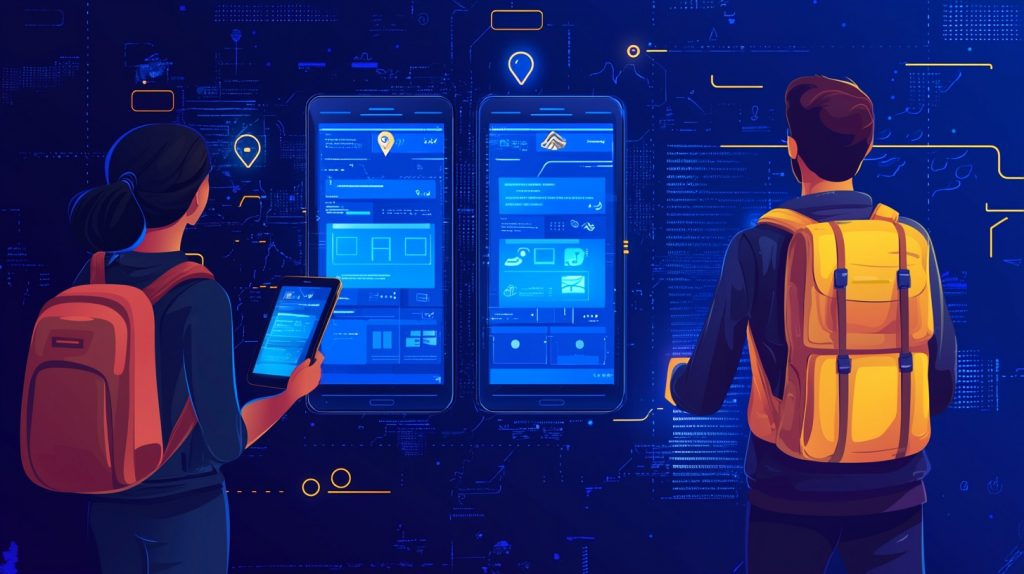Everyone knows that insurance is an essential part of traveling. You can learn about different conditions at this link: https://telegra.ph/Mandatory-Travel-Health-Insurance-to-Qatar-Everything-You-Should-Know-Before-Your-Next-International-Adventure-03-12.
Travel and insurance remain in-demand industries, and artificial intelligence (AI) is gradually making its way into this field, albeit with caution. One example is the use of AI to process insurance claims in just two seconds, clearly demonstrating its potential. However, this raises important questions: Can AI transform travel insurance, become a beneficial tool for both insurers and customers, and ensure reliable claim processing?
Let’s explore how artificial intelligence can change travel insurance — from simplifying the application process to revolutionizing the ways travelers receive support.
Enhancing the application process
Travel insurance applications are simpler than most other types of insurance. Unlike car insurance, which requires details like mileage and vehicle info, travel insurance usually just asks for your destination, travel dates, and basic personal info.
Travel insurance also feels more positive. While car insurance is often seen as a legal “grudge purchase,” travel insurance feels proactive and empowering. Research from AllClear shows 32% of travelers arrange insurance as soon as they book a trip.
Pricing is also appealing. While premiums for other insurance types have risen, travel insurance costs have stayed relatively stable. According to Finder, 87% of consumers were satisfied with their travel insurance.

How ai chatbots could assist travelers with complex medical needs
Travel insurance forms already adjust based on disclosed medical conditions. For example, someone with diabetes might be asked whether it’s managed with insulin or if related conditions like hypertension are present. While these questions are necessary for accurate risk assessment, they can confuse some applicants, leading to errors or incomplete submissions.
AI-powered chatbots could simplify this process by offering real-time, personalized assistance.
Imagine Sarah, a traveler with diabetes, struggling to understand “medication-managed diabetes.” An AI chatbot could instantly explain it means diabetes controlled with medication like insulin.
The chatbot could also prompt Sarah to provide additional details, like: “Do you have related conditions such as hypertension or kidney disease?” This ensures her application is complete and her policy is tailored to her needs.
Not everyone may want to use a chatbot, but offering it as an option would improve application accuracy, boost customer satisfaction, and create a more inclusive experience.
AI-powered apps: revolutionizing traveler support
For most people, travel insurance is a “peace of mind” purchase. After buying a policy, they rarely think about it unless something goes wrong. Many insurers already provide apps with basic policy info or travel tips, but engagement is low.
AI could change that, making these apps much more useful during trips.
For example, if a traveler gets injured abroad, they could ask the insurer’s AI app: “Where’s the nearest hospital covered by my policy?” The chatbot could respond instantly, saving time and reducing stress.
Lost luggage? The app could guide the traveler to airline lost-and-found services and assist with filing a claim. If essentials like clothes or toiletries are covered, the AI could process the request and authorize funds immediately.
By automating simple queries, AI chatbots improve the customer experience and reduce operational costs for insurers — possibly lowering premiums too.

Supporting travelers during a crisis
AI in travel insurance is especially valuable during emergencies like natural disasters. During the 2023 wildfires in Rhodes, for example, overwhelmed call centers left travelers struggling to contact their insurers.
An AI chatbot could provide instant guidance in such situations.
For instance, Emma and her family are on vacation when a wildfire breaks out. Local authorities issue evacuation orders, and Emma needs help fast. Opening her insurer’s app, Emma sees real-time updates: “You’re in Rhodes, where a wildfire has been reported. Click here for safety tips and evacuation routes.”
The chatbot could also assist based on her policy: “Your policy covers emergency accommodation. Would you like me to book a hotel for your family in a safe area?” By providing immediate support, the AI improves Emma’s safety and eases the load on customer service teams.





